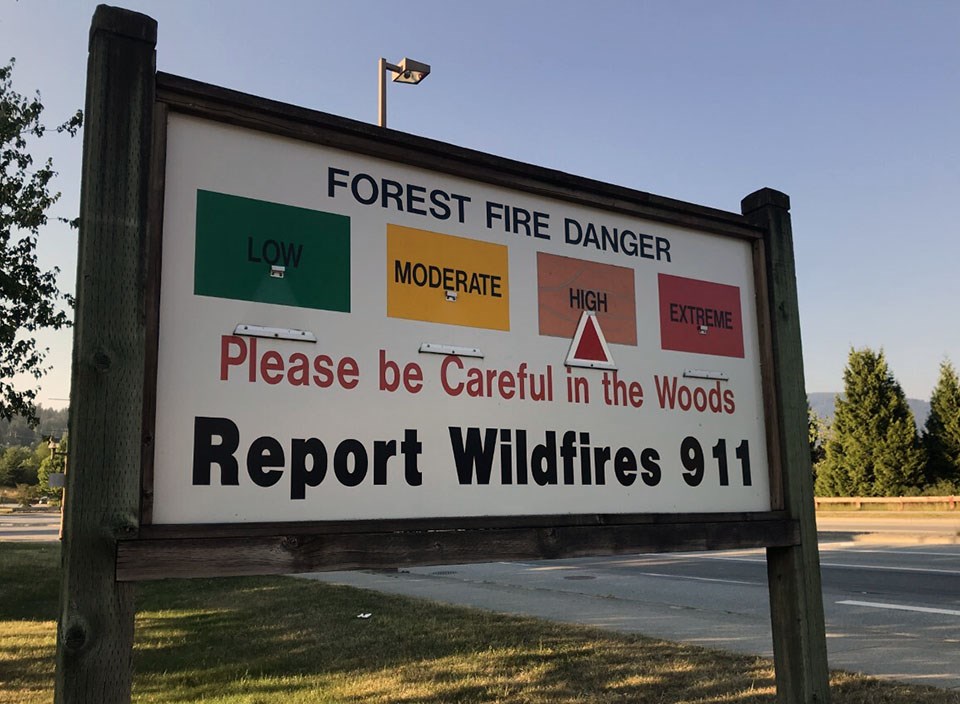Last summer, temperatures flirted around 50 C — with humidity — and the Tri-Cities felt the brunt of the scorching heat.
However, with the new apparent threat on everyone's mind, Coquitlam officials have their eyes set on summer, 2022 and what can be done should such an event take place again.
While the extreme heat could've courted a big blaze in nearby wildlands, the region was fortunate to dodge any possible wildfires resulting from the domes.
But fire chief Jim Ogloff believes preparations are coming along with more than half of the actions listed in city's community wildfire resiliency plan (CWRP) already active and/or in full force.
This includes FireSmart assessment opportunities for residents along environment borders, hazard tree removal in parks and holding exercises with those on the front-lines.
In his report to the city manager, Ogloff explains it's important for everyone to work together amid climate change and its "devastating outcomes."
"Local governments, regional partners, utility providers and provincial and federal ministries need to work collaboratively with each other, and directly with residents and businesses, to prepare as best we can through collective efforts In wildfire mitigation and adoption of FireSmart best practices," he says.
"Through regional partnerships and direct community outreach, staff continue to apply a comprehensive approach towards reducing our risk from wildfires."
Actions taken
According to Ogloff's report, 22 of 43 actions are currently active or in action from the CWRP — most of which, he says, are either short-term solutions or of high priority.
In addition ot standard seasonal preparedness, drills have been conducted on Coquitlam Lake in an effort to gain knowledge of the watershed's topography, as well as tours for in-service firefighters and the BC Wildfire Service.
This is to allow workers to focus on the local facilities available in the event of a wildfire, structure protection and access from the east perimeter road.
For residents, the deadline was also extended last week to Sept. 1 to receive a free FireSmart assessment of their homes.
About 5,000 properties along the urban-wildland interface, if they choose to participate, could receive grant funding for their upgrades by the end of 2022.
This is something Ogloff says his team will continue to promote as part of its community engagement along the Tri-Cities' northeast sector.
"[...] the city has been successful in receiving grant funding by the province, through the Union of British Columbia Municipalities (UBCM) under the Community Resiliency Investment (CRI) FireSmart Funding and Supports and FireSmart Economic Recovery Fund programs, to advance both regional and local wildfire preparedness initiatives," adds Ogloff, referring to the $496,000 Coquitlam received in 2021 in a partnership with Port Coquitlam, Anmore and Belcarra.
"With these various activities in process, the following section in the report highlights key initiatives and noted partners working cooperatively to reduce the threat of wildfire in Coquitlam."
As well, he explains his firefighting cohorts attended a virtual workshop in March on the evolution of wildfire behaviour through climate change and weather modelling.
You can read Ogloff's report in full via the City of Coquitlam's website, as well as the CWRP, which was updated as recent as December 2021.
Coquitlam began its wildfire plan update after it received a $50,000 grant in February last year.

.jpg;w=120;h=80;mode=crop)



